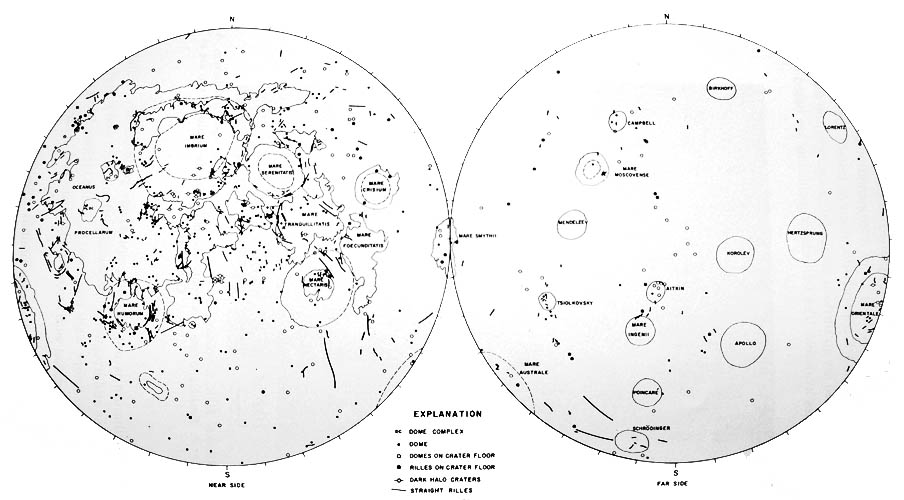May 30, 2005
Hundreds of Domes
Image Credit: Map by Gene Smith, The Moon |
|
Hundreds of Domes In terrestrial volcanology the word dome most commonly refers to a silica-rich, steep-sided volcanic hill. But typical lunar domes, such as Kies Pi, are most like terrestrial small shield volcanoes which are made of silica-poor basalts and have very gentle slopes. In 1973, Gene Smith, a young volcanologist at the University of New Mexico, published an article summarizing his search for domes on the Lunar Orbiter images. He cataloged more than 300 suspected domes on the lunar near and far sides. Most of his domes are not small shields like Kies Pi (because they are not easily detected on the high sun Lunar Orbiter images). Examples of the types of features Smith considered to be domes include localized swellings on mare ridges, hills on the floors of Copernicus and other craters, the Gruithuisen domes, and bulbous (boytroidal is the delightful geology word) hills inside the farside crater Aitken. In 1973 it was still thought by some lunar scientists that volcanism of a lava chemically very different from mare basalts might be widespread. Today, we believe that such evolved lavas exist (e.g. Gruithuisen domes) but are relatively rare. The bumps on the floors of Copernicus and other young craters are now interpreted as debris from the impact that formed the craters. But we still dont know what the mare ridge hills and boytroidal hills are. Gene Smiths 30 year old map and catalog need to be re-analysed to evaluate which of his domes are still unexplained. Technical Details: Related Links: Yesterday's LPOD: A Shallow Sea of Lava Tomorrow's LPOD: New Color in Old Pictures |
|
Author & Editor: |
COMMENTS?
Register, Log in, and join in the comments.




